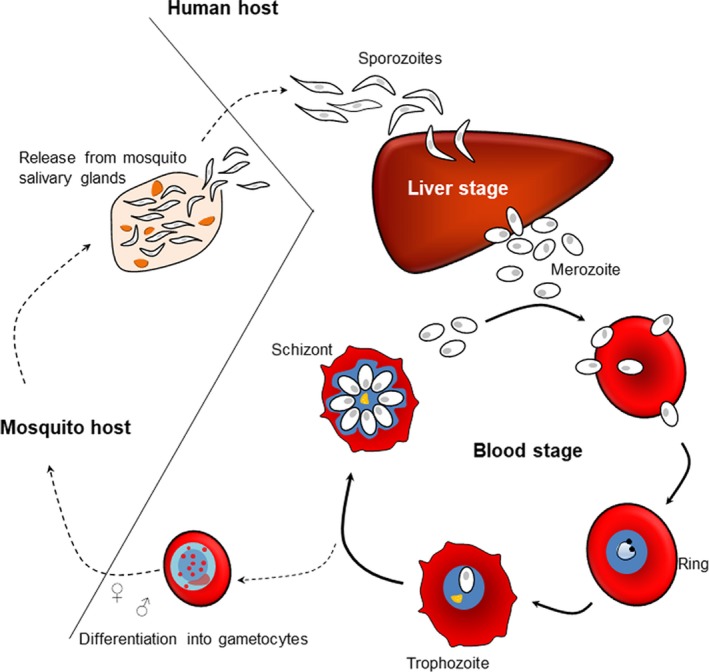Figure 1.

Life cycle of Plasmodium falciparum. Human infection with P. falciparum parasites is initiated when an infected female Anopheles spp. mosquito injects sporozoites during a blood meal. Sporozoites transit from the host peripheral circulation to the liver, where they infect hepatocytes. The liver stage is asymptomatic and lasts for approximately 1 wk. Eventually, the infected liver cells rupture to release extracellular merozoites into the host circulation. The merozoites invade erythrocytes, thereby initiating the asexual blood stage of the infection, which causes all the clinical symptoms of malaria. Once inside the erythrocyte, the merozoite undergoes a series of divisions (schizogony) over a period of 48 h, following which daughter merozoites are released to infect new erythrocytes. Some asexual parasites do not undergo schizogony, but develop into sexual precursors (gametocytes), which can be taken up by mosquitoes during a blood meal to complete the life cycle
